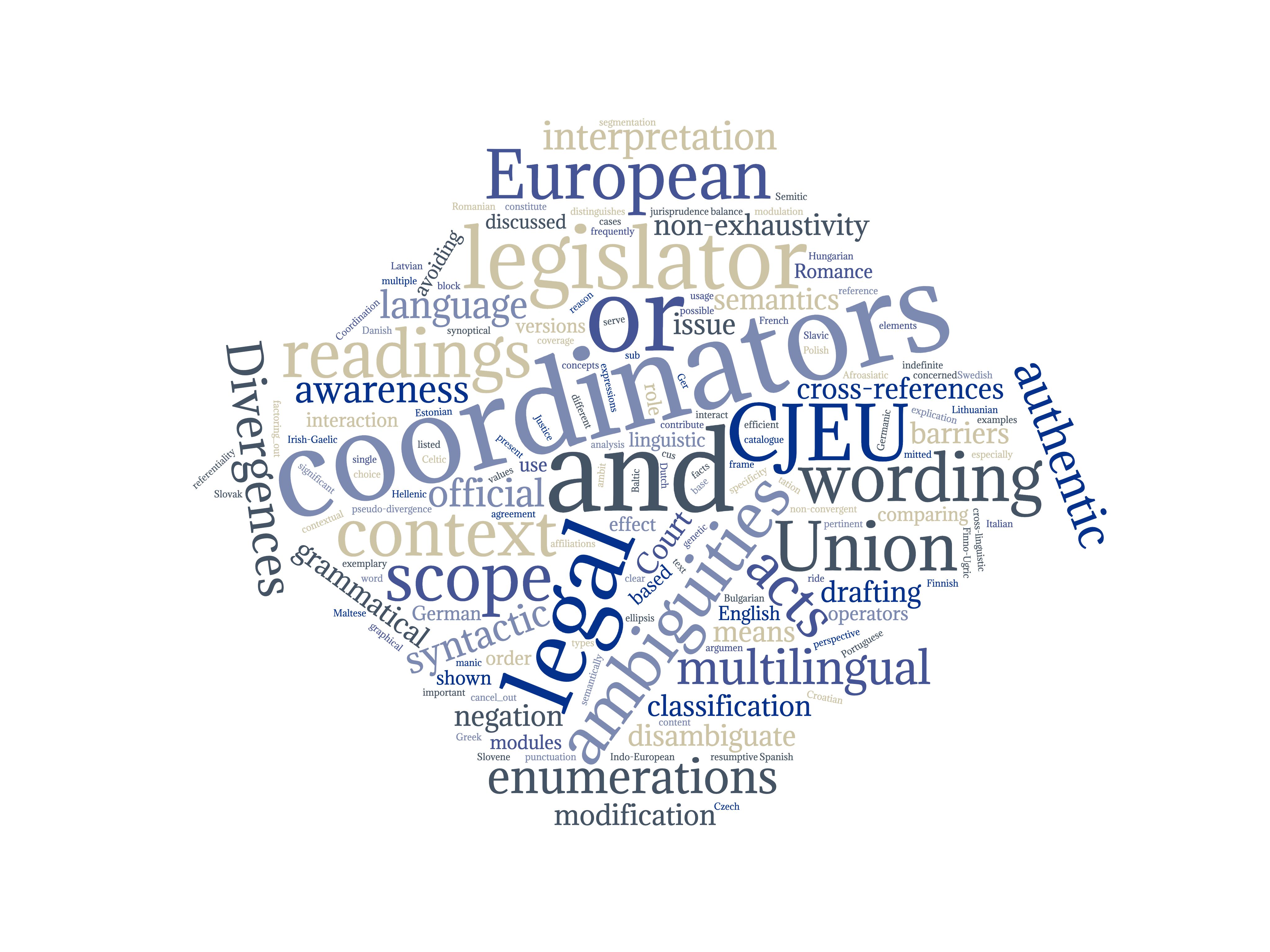Abstract
The semantics of the coordinators ‘and’ and ‘or’ play an important role in the multilingual legal acts of the European Union with its 24 official languages. The multiple readings of ‘and’ and ‘or’ can lead to ambiguities and content divergences both within a single language version and across several language versions in the synoptical perspective. Therefore, they are frequently at issue in legal interpretation at the Court of Justice of the EU.
The present analysis of exemplary cases heard by the CJEU distinguishes different types of ambiguities and divergences which are based on the use of coordinators: ambiguity of ‘and’ and ‘or’, of enumerations, and of scope (“ambit”) are discussed here with the help of Germanic and Romance language examples. Scope ambiguity arises in the interaction of coordinators with each other and with other grammatical operators such as negation and modification. Divergences are based on semantically non-convergent uses of coordinators.
Context may cancel out the ambiguity or divergence effect of a coordinator. Several linguistic means are shown to serve as scope barriers which block ambiguities.
Awareness of these facts is of help in drafting legal texts and furnishes pertinent argumentation modules in comparing and interpreting multilingual legal acts.
Die Semantik der Koordinatoren ‘und’ und ‘oder’ spielt eine wichtige Rolle in den multilingualen Rechtsakten der Europäischen Union mit ihren 24 Amtssprachen. Die Bandbreiten der Lesarten von ‘und’ und ‘oder’ führen zu Ambiguitäten und inhaltlichen Divergenzen sowohl innerhalb einer Sprachfassung wie auch in synoptischer Perspektive über verschiedene Sprachfassungen hinweg. Daher sind Koordinatoren häufig Gegenstand der Rechtsauslegung am Europäischen Gerichtshof.
Die vorliegende Studie einschlägiger Fälle klassifiziert verschiedene Arten von Ambiguitäten und Textdivergenzen durch Koordinatoren: Ambiguität von ‘und’ und ‘oder’, von Aufzählungen und des Skopus werden anhand von Beispielen aus germanischen und romanischen Sprachen diskutiert. Skopusambiguität entsteht durch die Interaktion der Koordinatoren miteinander und mit anderen Operatoren, wie Negation und Modifikation. Divergenzen ergeben sich aus nicht-konvergentem Gebrauch von Koordinatoren.
Es wird gezeigt, wie mit dem Kontext den Ambiguitäten und Divergenzen gegengesteuert werden kann und sprachliche Mittel als Skopusbarrieren dienen, die Ambiguität blockieren.
Die Kenntnis solcher Strategien kann bei der Rechtsetzung genutzt werden und stellt für Rechtsvergleich und Rechtsauslegung Argumentationshilfen bereit.

Dieses Werk steht unter der Lizenz Creative Commons Namensnennung - Nicht-kommerziell - Keine Bearbeitungen 4.0 International.
Copyright (c) 2019 Zeitschrift für Europäische Rechtslinguistik (ZERL)

